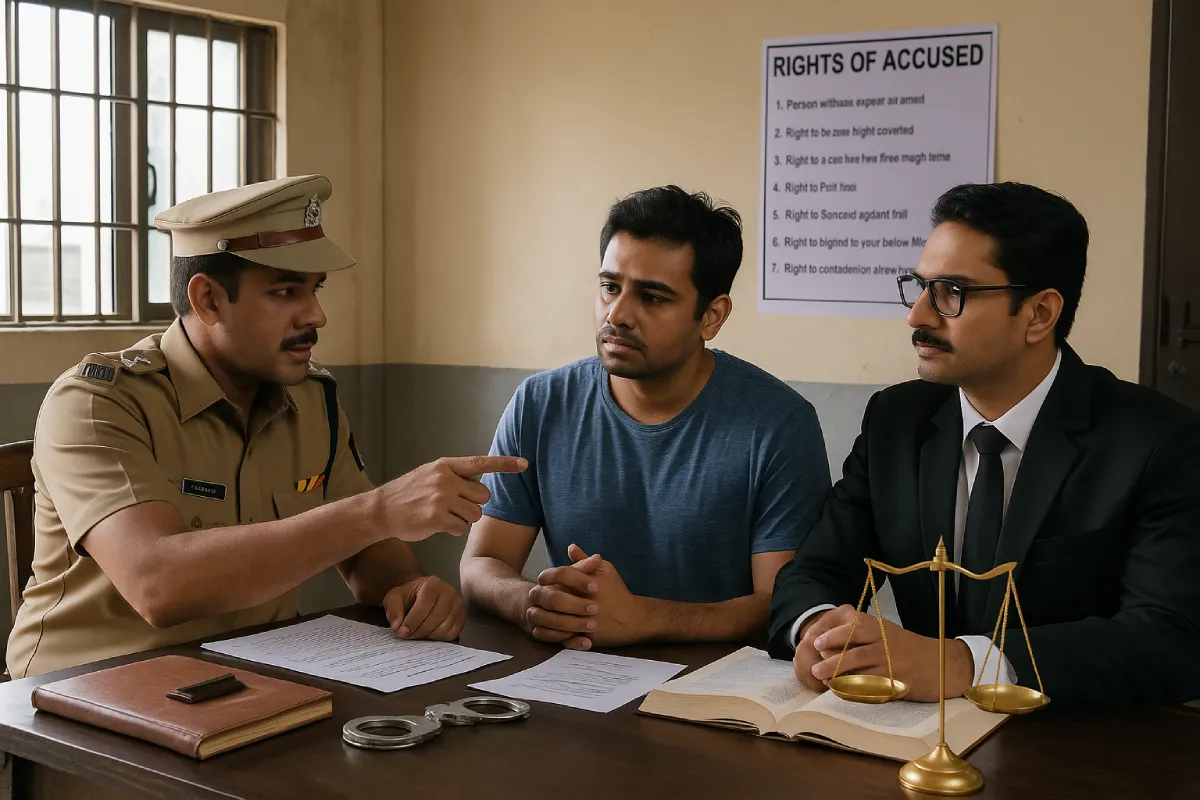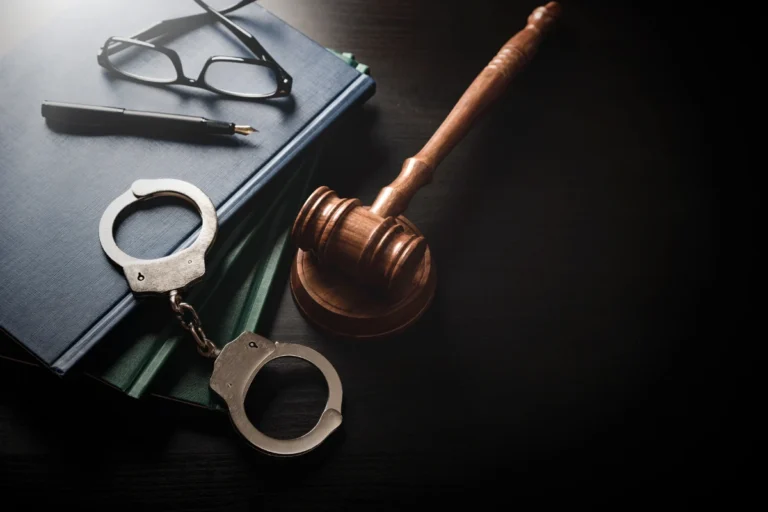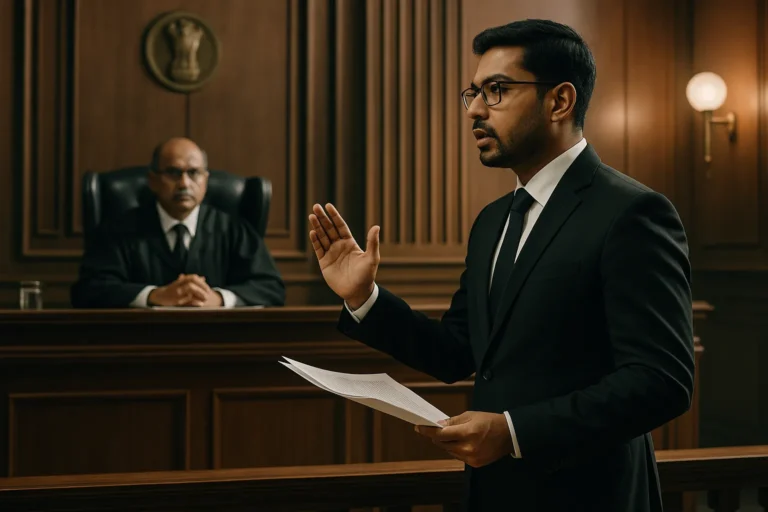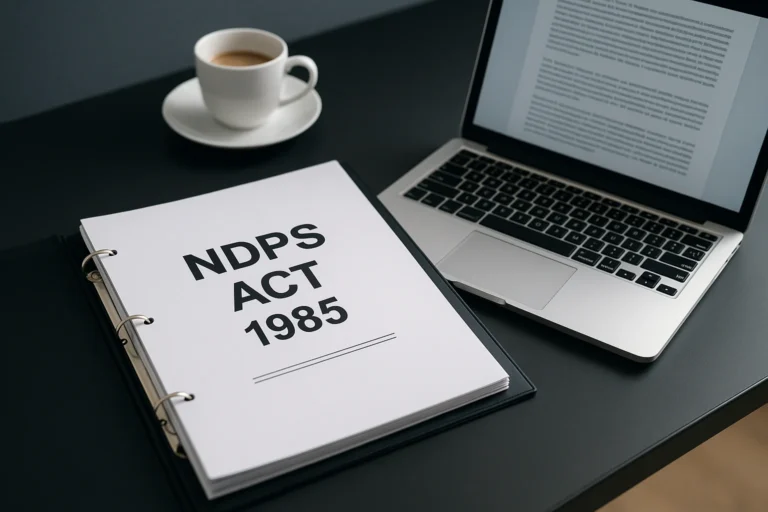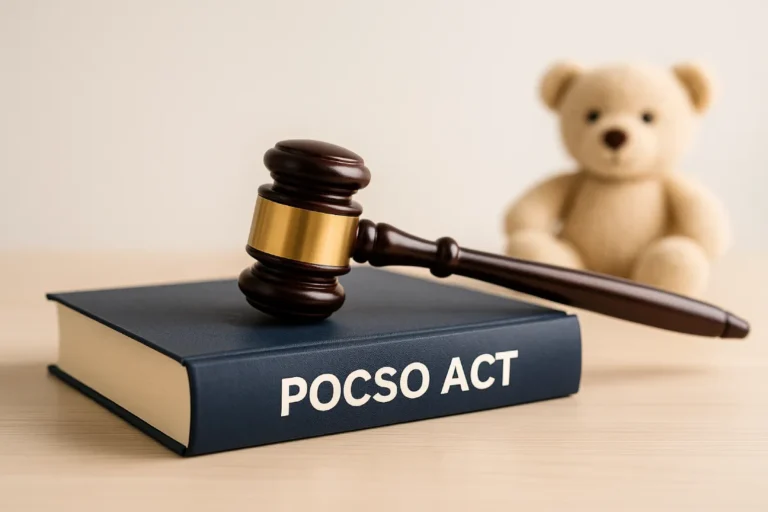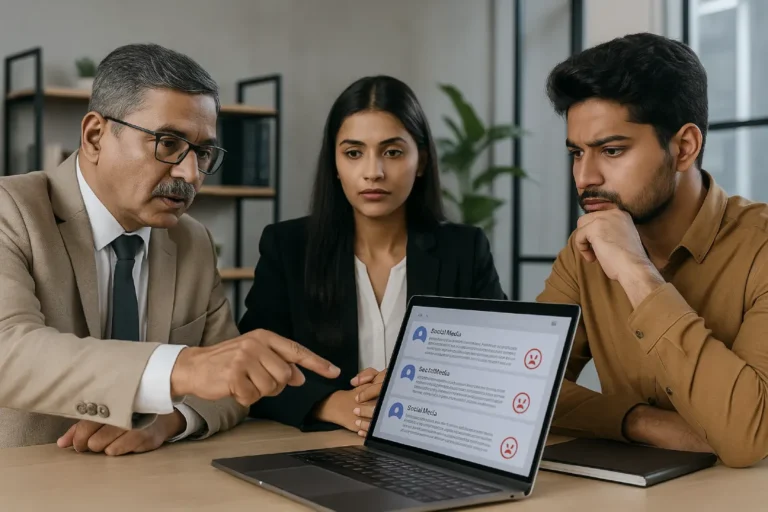Rights of Arrested Person: Legal Protections You Should Know
The rights of arrested person form one of the most critical foundations of criminal law in India. They ensure that no individual, regardless of the charges, is deprived of basic human dignity and due process. Under the Code of Criminal Procedure (CrPC) and the Bharatiya Nagarik Suraksha Sanhita (BNSS), these rights safeguard citizens against unlawful arrest, custodial torture, and procedural injustice.
In this blog, we break down the major categories of these rights from immediate protections during arrest to judicial remedies and compensation for wrongful detention based on the framework laid out in the Indian legal system.
1. Immediate Rights Upon Arrest
When a person is arrested, several immediate legal protections come into play. These ensure transparency, fairness, and access to legal assistance.
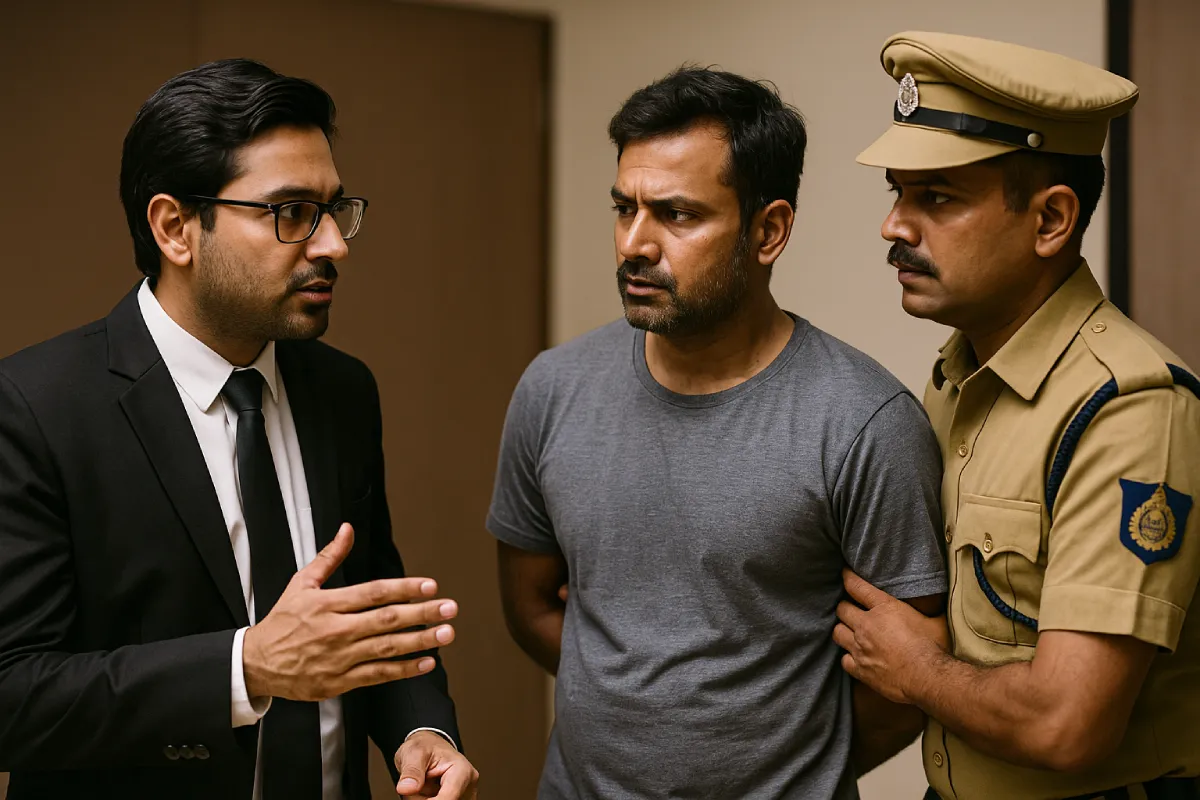
Grounds for Arrest
According to Section 50(1) CrPC and Section 36(1) BNSS, every person who is arrested must be informed of the reasons for their arrest. The police officer cannot withhold this information.
Right to See the Warrant
If the arrest is made under a warrant, the person has the right to inspect it. Section 75 CrPC (mirrored under BNSS) mandates that the warrant must specify the offense and be shown at the time of arrest.
Right to Legal Counsel
Under Article 22(1) of the Constitution, every arrested individual has the right to consult and be defended by a legal practitioner of their choice. To understand how to find experienced defense support, visit our guide on choosing the right criminal lawyer.
Right to Free Legal Aid
If the accused cannot afford an advocate, Article 39A and the Legal Services Authorities Act, 1987, guarantee free legal assistance. The Supreme Court in Khatri v. State of Bihar (1981) held that denial of this right violates Article 21.
Right to Bail
For bailable offenses, the accused has the right to seek bail as per Sections 436 and 437 CrPC. The police officer or magistrate must inform the person of this right immediately. You can read more about this in our article on what are the types of bail in India.
Information to Next of Kin (Section 50A CrPC)
The police must inform a friend, relative, or any nominated person about the arrest and the place of detention. Non-compliance with this provision can render the arrest unlawful.
2. Judicial Process Rights
Once an arrest has been made, judicial oversight ensures the legality and fairness of the process.
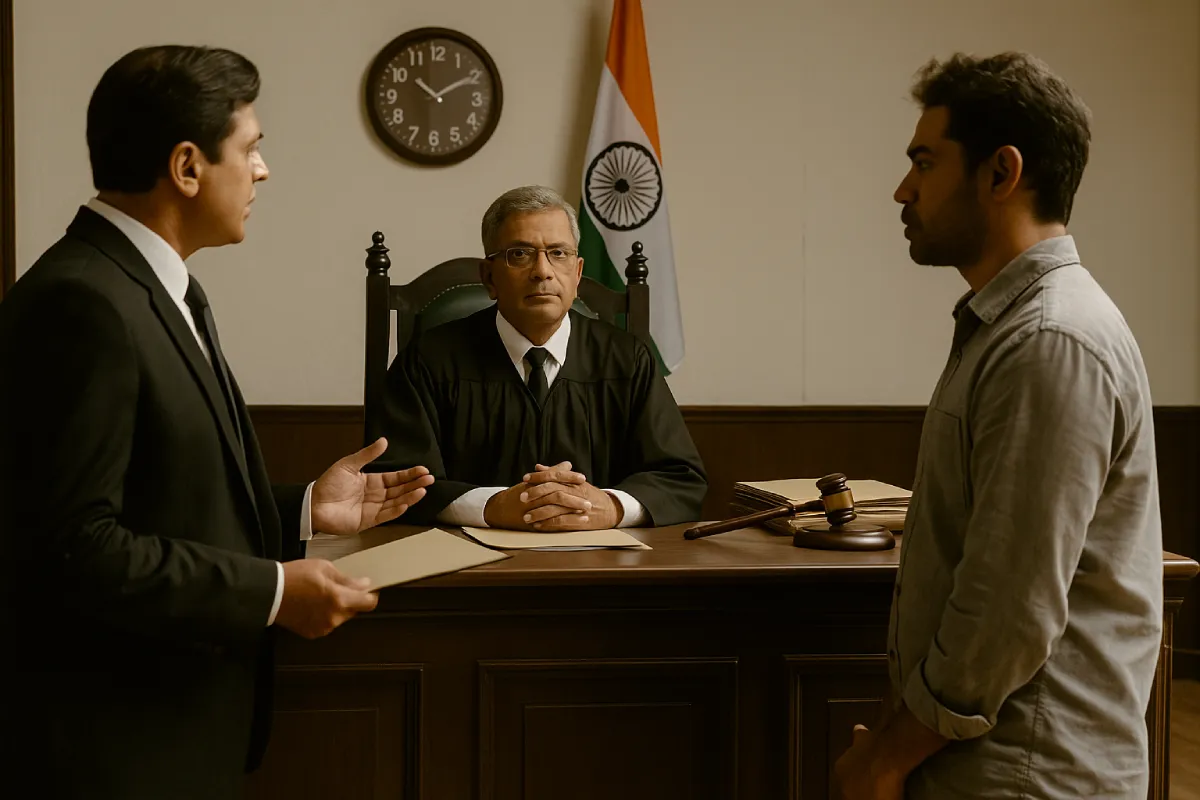
Produced Before Magistrate
Under Section 57 CrPC and Section 36(2) BNSS, an arrested person must be produced before a magistrate within 24 hours. Detention beyond this period without judicial approval is unconstitutional.
Protection from Unlawful Detention
Prolonged or preventive detention without cause is a violation of Article 22(2). The magistrate reviews the evidence and determines whether further detention is justified.
Right to Fair Trial
A cornerstone of justice, this right ensures that proceedings are impartial and evidence-based. It is protected under Article 21 and reinforced by judicial precedents.
Right to Speedy Trial
In Hussainara Khatoon v. State of Bihar (1979), the Supreme Court declared that the right to a speedy trial is part of Article 21. This prevents unnecessary incarceration and delays in justice.
3. Protection Rights During Custody
Custodial rights focus on protecting the accused from physical or psychological abuse.
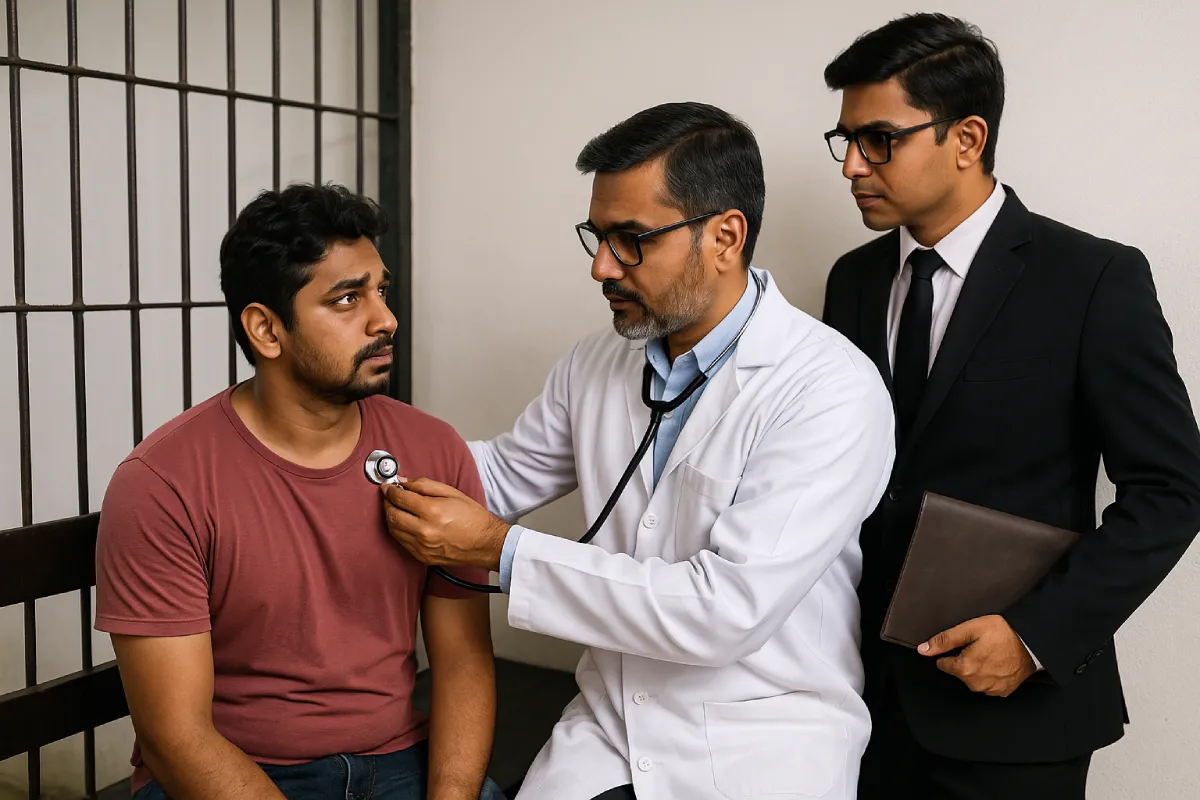
Right to Remain Silent (Self-Incrimination)
Under Article 20(3), no person accused of an offense shall be compelled to testify against themselves. This principle guards against forced confessions.
Protection from Cruel or Inhuman Treatment
Any form of torture, harassment, or physical abuse during custody violates Article 21. The D.K. Basu v. State of West Bengal (1997) case laid down guidelines for the humane treatment of detainees.
Right to Medical Examination (Section 54 CrPC)
If the accused alleges physical maltreatment, they have the right to a medical examination by a registered practitioner. This provision ensures accountability during custody.
Health and Safety
Authorities must maintain hygienic living conditions and provide medical care to those in detention. Failure to ensure health and safety can amount to a violation of fundamental rights.
4. Guidelines and Compensation
The Indian judiciary has established strict procedures and penalties for unlawful arrests.
D.K. Basu Guidelines (Mandatory Compliance)
This landmark judgment outlines steps to prevent custodial abuse, including maintaining arrest records, notifying relatives, and conducting periodic inspections.
Action for Non-Compliance
If police or authorities fail to adhere to these guidelines, disciplinary or criminal action can be taken. Victims can approach the National Human Rights Commission (NHRC) or the courts for redress.
Compensation for Wrongful Arrest
In Rudal Shah v. State of Bihar (1983), the Supreme Court recognized compensation as a constitutional remedy for unlawful detention under Article 21.
Mode of Arrest (Sections 46 & 49 CrPC)
These sections define how an arrest must be carried out without unnecessary restraint or violence. The person cannot be subjected to more force than is required.
For related insights into how arrests connect with bail proceedings, explore our article on how to get bail in Bangalore.
5. Rights of Arrested Person under BNSS
The Bharatiya Nagarik Suraksha Sanhita (BNSS), 2023, modernizes criminal procedure, emphasizing digital transparency and accountability.
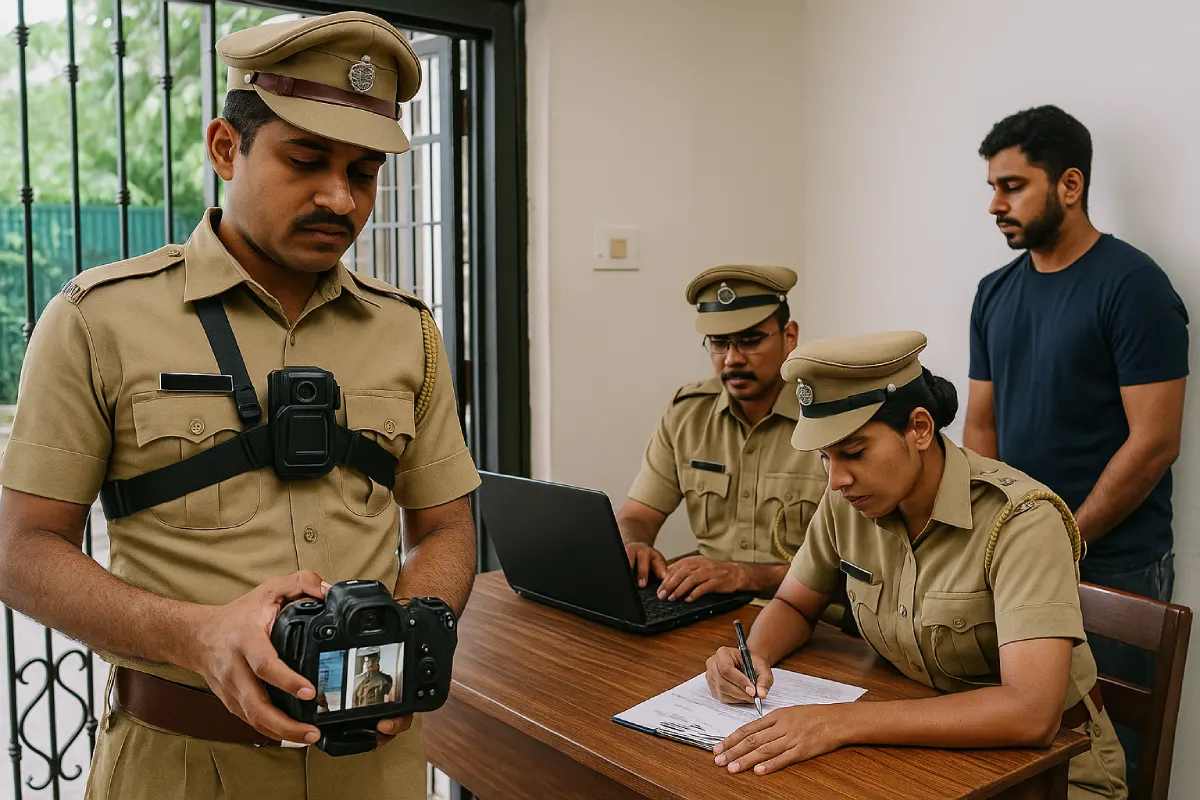
Key updates include:
- Mandatory video recording of arrests.
- Electronic intimation to family and legal representatives.
- Strict timelines for production before magistrates.
- Enhanced rights during women’s arrest and interrogation.
These reforms align with constitutional values and reinforce India’s commitment to justice and human dignity.
FAQs
What are the rights of a person when arrested?
An arrested person has the right to know the reason for arrest, consult a lawyer, get bail (if applicable), be produced before a magistrate within 24 hours, and have access to medical care and family communication.
What are the rights of arrested person in Article 22?
Article 22 provides the right to be informed of the reasons for arrest, consult a legal practitioner, and be produced before a magistrate within 24 hours.
What are the rights of arrested persons under Article 20?
Article 20(3) protects against self-incrimination, ensuring that no one can be forced to confess guilt or provide testimony against themselves.
What are the rights of an accused person?
The accused enjoys rights such as the presumption of innocence, the right to a fair and speedy trial, legal representation, and protection from unlawful detention or punishment.
For a deeper understanding of criminal law processes, see our detailed post on grounds for quashing of FIR.
Conclusion
Understanding the rights of arrested person isn’t just about legal literacy; it’s about protecting one’s liberty and dignity. At Prashastha Legal, our expert criminal lawyers in Bangalore ensure that your rights are upheld at every stage from arrest to bail, trial, and beyond.
If you or someone you know is facing unlawful detention or criminal charges, don’t wait. Contact Prashastha Legal today for professional guidance and effective legal representation. Your rights deserve a strong defense.

